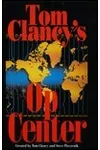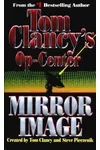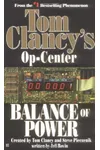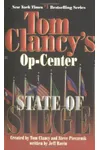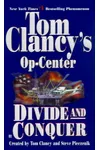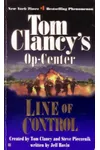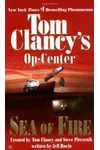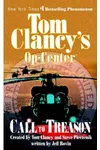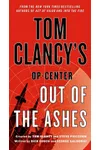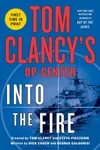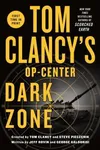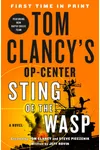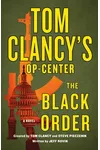Step into the high-octane world of Tom Clancy’s Op-Center, where covert operatives race against time to thwart global crises! This thrilling military fiction series, created by Tom Clancy and Steve Pieczenik, blends pulse-pounding action with intricate political intrigue. Led by Paul Hood, the National Crisis Management Center—aka Op-Center—tackles threats from rogue terrorists to international conspiracies, offering readers a front-row seat to the shadowy world of espionage and crisis management.
With its mix of cutting-edge technology, moral dilemmas, and relentless suspense, Op-Center captures the essence of Clancy’s signature style while carving its own niche. Whether you’re a longtime fan of military thrillers or new to the genre, this series promises an adrenaline-fueled ride through a world where every decision could mean war or peace.
How Op-Center Began
In the mid-1990s, Tom Clancy, already a household name with bestsellers like The Hunt for Red October, teamed up with Steve Pieczenik, a former State Department official and thriller writer, to create Op-Center. Their vision? A series centered on a covert U.S. agency handling crises too sensitive for traditional channels. The first novel, Op-Center (1995), was ghostwritten by Jeff Rovin, who penned the initial 12 books, with later reboots by authors like Dick Couch and George Galdorisi. Inspired by Clancy’s love for military precision and Pieczenik’s diplomatic expertise, the series merged technical detail with real-world stakes, debuting as both a novel and a 1995 NBC miniseries starring Harry Hamlin.
The Heart of Op-Center
The Op-Center series spans 23 books, with standout titles shaping its legacy. The first, Op-Center, follows Paul Hood as his team uncovers a plot by renegade South Korean soldiers to spark war with North Korea. Mirror Image (1995) dives into Russian hardliners plotting to derail democracy, while Games of State (1996) tackles neo-Nazi resurgence in Germany. The rebooted Out of the Ashes (2014) sees Chase Williams leading a modernized Op-Center against Middle Eastern terrorists. Each book delivers fast-paced plots, shifting between Washington, D.C., and global hotspots like Seoul, Moscow, and Botswana.
Themes of duty, sacrifice, and the gray areas of global politics run deep. Op-Center’s operatives navigate moral complexities—when is intervention justified? How far is too far? The series’ style leans on Clancy’s hallmark: meticulous research, technical jargon, and ensemble casts. Critics note its slower pacing compared to Clancy’s Jack Ryan novels, but fans praise its focus on intelligence gathering and team dynamics. Settings, from high-tech command centers to war-torn regions, ground the stories in a believable yet thrilling reality.
Why Op-Center Resonates
Op-Center’s blend of realism and suspense has cemented its place in military fiction. While not as iconic as Jack Ryan, its focus on a covert agency tackling timely threats—like terrorism, cyberattacks, and geopolitical strife—keeps it relevant. The series inspired a 1995 miniseries and influenced Clancy’s later Net Force books, showing its impact on the genre. Fans on platforms like Goodreads laud its intricate plots, with authors like Stephen Coonts calling it “realistic military action and suspense.” Its niche appeal lies in its deep dive into crisis management, appealing to readers who crave strategy over brute force.
- About Op-Center
- Publication Years: 1995–2005 (original), 2014–present (reboot)
- Total Books: 23
- Key Authors: Jeff Rovin, Dick Couch, George Galdorisi
- Adaptation: 1995 NBC miniseries
Ready to dive into a world of covert ops and global stakes? Grab Op-Center and join Paul Hood’s team in a thrilling race against time!
